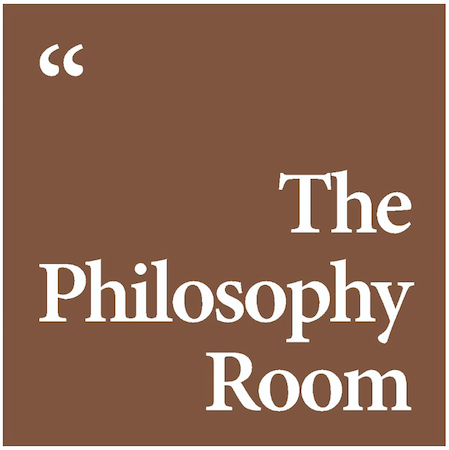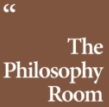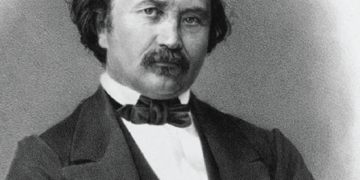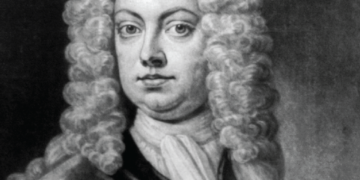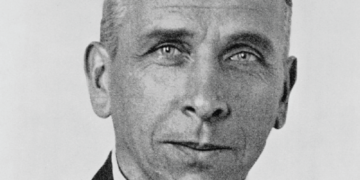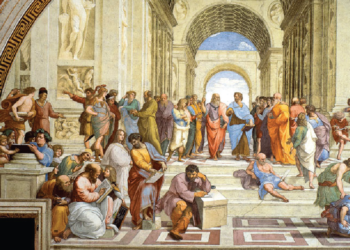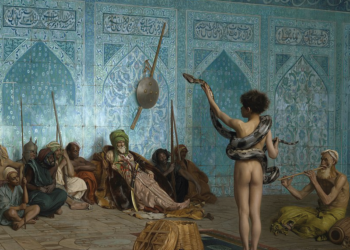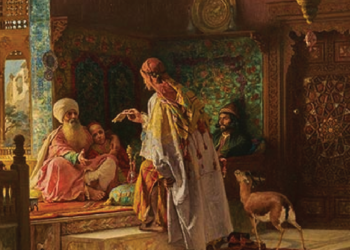Fan Li
1) His Biography
Fan Li, also known by the honorary title Tao Zhu Gong, was a prominent figure in ancient Chinese history whose life spanned the late Spring and Autumn period, around the 5th century BCE. Born in the state of Chu, Fan Li rose to prominence during a time of intense political fragmentation and frequent warfare between regional states. Although details about his early life remain sparse, historical accounts suggest that he was highly intelligent and well-versed in statecraft, which eventually led him to serve as an advisor to King Goujian of Yue. His role in transforming Yue from a defeated state into a formidable power is widely celebrated in Chinese historical and philosophical literature.
Fan Li’s reputation grew significantly through his involvement in Yue’s campaign against the rival state of Wu. After the devastating loss Yue suffered at the hands of Wu, Fan Li remained loyal to King Goujian and helped devise a long-term strategy of recovery and revenge. Over the course of several years, Fan Li implemented measures to strengthen Yue’s economy, rebuild its army, and subtly undermine Wu through political and military manoeuvres. Eventually, these efforts culminated in the defeat and destruction of Wu, marking a triumph not only for King Goujian but also for Fan Li’s vision and strategy.
Interestingly, after this major victory, Fan Li made a radical decision to resign from political life. Unlike many of his contemporaries who sought to consolidate power, Fan Li chose to withdraw from the court and live a more private life. He moved to the state of Qi, changed his name, and pursued a new path as a businessman. This marked a pivotal transformation in his life, highlighting his multifaceted talents and philosophical outlook, which favoured detachment from worldly ambition once his duties had been fulfilled.
As a businessman in Qi, Fan Li quickly demonstrated his acumen for commerce and finance. According to traditional accounts, he became extremely wealthy through astute investment and trading practices, which he later codified into principles of economic conduct. His writings and ideas about ethical entrepreneurship, market timing, and capital management made him an enduring figure in Chinese economic thought. Despite his success, he is said to have given away much of his fortune, embodying a Confucian ideal of moral responsibility and humility.
Fan Li was not only an economist and strategist but also a philosopher and writer. His attributed works, though possibly compiled by later followers, reflect deep insights into governance, business, and human nature. Among his most famous sayings is the idea that “he who prospers in business must also prosper in virtue,” underscoring his belief in ethical conduct as a foundation for long-term success. His thoughts were widely circulated during and after his lifetime, influencing both economic theory and ethical discourse in subsequent generations.
The reverence for Fan Li continued to grow long after his death. He was often held up as a paragon of loyalty, intelligence, and foresight. In Chinese folklore and historical texts, his life was romanticised as a model of strategic brilliance and moral clarity. The combination of his military, political, and commercial achievements led to his deification in certain traditions, especially within Daoist and merchant communities, who regarded him as a patron of wisdom and prosperity.
In modern Chinese culture, Fan Li is remembered as one of the earliest examples of a polymath—someone who bridged the worlds of governance, warfare, economics, and philosophy. Statues and temples dedicated to him can still be found in various parts of China, and his legacy continues to be invoked in discussions of ethical leadership and strategic thinking. His biography offers not just a glimpse into one individual’s life, but also a window into the broader socio-political and economic currents of early Chinese civilisation.
2) Main Works
“Fan Li Bingfa” (范蠡兵法):
The most widely cited work linked to Fan Li is the “Fan Li Bingfa” (范蠡兵法), translated as Fan Li’s Art of War. This military treatise, much like Sun Tzu’s Art of War, offers strategic principles on warfare and political manoeuvring. It is believed to distil Fan Li’s experiences in assisting Yue to recover and eventually conquer Wu. The text outlines methods of deception, psychological warfare, and long-term planning. It differs from Sun Tzu’s work by placing more emphasis on understanding human nature and moral judgment in strategy. While not as expansive or famous, it provides valuable insights into the blend of ethics and tactics that defined Fan Li’s approach.
“Shang Jing” (商经)-The Classic of Commerce
Another important text is the “Shang Jing” (商经) or The Classic of Commerce, often referred to as “Tao Zhu Gong’s Art of Business” (陶朱公商训). This treatise is a foundational work in traditional Chinese business literature. It consists of advice on investment, risk management, employee relations, and market strategy. Fan Li outlines what he calls the “Nine Strategies of Business,” which include principles such as timely buying and selling, valuing integrity, and understanding customer needs. The work remains highly respected among Chinese business communities and is still referenced in merchant ethics and family-run business manuals.
“Qian Fu Lun” (潜夫论)
Also attributed to Fan Li is the “Qian Fu Lun” (潜夫论), although scholarly consensus is divided on this. The title roughly translates as Essays of a Retired Scholar. This collection of aphorisms and essays reflects on statecraft, personal conduct, and the dangers of remaining in power too long. It contains philosophical reflections likely compiled or expanded by later Confucian writers, yet it aligns with Fan Li’s known life choices—especially his retreat from political life following Yue’s victory over Wu. The core themes are detachment, humility, and the importance of timely withdrawal, reinforcing his reputation as a thinker of profound self-awareness.
Dao of Managing Wealth (《致富之道》)
This work focuses on the philosophical and strategic foundations of acquiring and preserving wealth. It blends practical advice with Daoist overtones, reflecting Fan Li’s belief in aligning economic activity with the rhythms of nature and society. He encourages careful observation of trends, a flexible approach to risk, and the virtue of knowing when to stop accumulating wealth. The text also warns against becoming enslaved by riches, advocating for a harmonious and balanced life.
Letters to Wen Zhong (《与文种书》)
These are said to be a series of personal letters from Fan Li to his fellow adviser Wen Zhong, written after Fan Li withdrew from public service. They include reflections on power, ambition, loyalty, and personal freedom. Fan Li gently cautions Wen Zhong to let go of attachment to status and not be ensnared by the king’s favour. The letters are often cited in later moral and philosophical works as examples of disillusionment with court life and the embrace of inner peace.
Maxims of Tao Zhu Gong (《陶朱公家训》)
Attributed to Fan Li under his later name, Tao Zhu Gong, this is a set of aphorisms and teachings directed at his descendants and followers. The maxims cover topics such as thrift, discipline, moral conduct, and family responsibility. It promotes the value of learning, hard work, and ethical integrity as the basis for both personal success and social harmony. The work was widely circulated among merchant families in later dynasties and helped cement Fan Li’s status as a legendary figure in Chinese commercial tradition.
3) Main Themes
Ethical Commerce
One of the central themes in Fan Li’s economic philosophy is ethical commerce. Fan Li consistently emphasised the importance of conducting business with integrity, fairness, and compassion. He believed that trust was the foundation of long-term success, and that unscrupulous business practices—though potentially profitable in the short term—would ultimately lead to failure or public disgrace. His writings often advocated for treating both customers and business partners with respect, promoting honesty in pricing and dealing, and maintaining a strong personal reputation. This approach laid the groundwork for a Confucian-influenced tradition of moral entrepreneurship that would endure in Chinese merchant culture for centuries.
Market timing and Cyclical awareness
Another recurring theme is market timing and cyclical awareness. Fan Li urged merchants to pay close attention to seasonal patterns, shifts in supply and demand, and larger economic trends. His advice frequently involved buying goods when they were abundant and prices low, and selling them when they became scarce and demand increased. This principle—akin to modern supply-and-demand economics—shows Fan Li’s deep understanding of market cycles. He advocated adaptability and careful observation, warning against rigid planning and encouraging decisions based on changing conditions. He viewed economic success as the result of aligning human effort with natural rhythms.
Diversification and Risk Management
This theme also features prominently in his work. Fan Li cautioned against putting all one’s resources into a single trade or product, emphasising the need for a broad, balanced approach to investment. By diversifying business interests—be it in agriculture, textiles, trade, or transport—merchants could protect themselves against unexpected downturns. He also advised careful risk assessment before entering any venture, recommending thorough research, strategic reserve funds, and long-term planning. This prudent and forward-thinking mindset reflects an early grasp of what today might be considered financial literacy.
Resource Efficiency and Frugality
A fourth key theme is resource efficiency and frugality. Fan Li believed that managing costs and avoiding unnecessary waste were essential to sustainable prosperity. He encouraged merchants to minimise extravagance, invest in labour-saving methods, and focus on productive uses of capital. Efficiency was not just a business goal—it was a moral duty. Fan Li saw the proper use of resources as a way to respect both nature and society, encouraging moderation and responsibility over opulence. His concern for balanced resource use resonates with ecological and sustainability ideas that have become increasingly relevant today.
Human Capital and Relationship Management:
This theme also occupied a central place in Fan Li’s thinking. He stressed the importance of choosing the right people—be it business partners, employees, or advisors. In his writings, he advises leaders to treat workers kindly, reward loyalty, and dismiss those who are dishonest or incompetent. For Fan Li, human relationships were a key component of economic success. He viewed social harmony, mutual respect, and trustworthy networks as assets just as valuable as physical capital. His emphasis on interpersonal trust and community responsibility links economics closely with Confucian social ethics.
Strategic Withdrawal and Contentment:
Fan Li also developed the theme of strategic withdrawal and contentment. Once success was achieved, he believed one should know when to retreat, avoiding the dangers of overextension or attracting political suspicion. This idea is not only personal advice but an economic one: knowing when to exit a market, sell a business, or shift strategy is part of wise leadership. This reflects a broader Daoist influence in his thought, valuing harmony, balance, and withdrawal from excess. His own life—leaving politics after helping defeat Wu and retiring from business after great success—embodied this principle.
Governance and Statecraft
Though he eventually left political life, Fan Li wrote thoughtfully about governance. He stressed the interdependence of economic stability, military strength, and ethical leadership. He supported agricultural development, population management, and fair taxation as pillars of a strong state. His views on ruling were pragmatic but grounded in a clear moral compass, aimed at achieving harmony and resilience in society.
Letting Go of Fame and Attachment
Perhaps most philosophically profound is Fan Li’s recurring message about renouncing fame, titles, and material attachment. He saw these as transient and ultimately burdensome. True wisdom, he argued, lay in cultivating a peaceful and principled life, even if it meant obscurity. This theme, drawn heavily from Daoist influences, offered a counter-narrative to the ambitions typical of his era.
4) Fan Li as Business Strategist
Fan Li’s legacy as a business strategist is deeply embedded in early Chinese commercial thought, marking him as one of the first figures in recorded history to articulate a coherent philosophy of enterprise. His transition from political adviser to merchant in the state of Qi exemplifies not only personal reinvention but also a model for strategic economic behaviour. Unlike mere traders of his time, Fan Li approached commerce with the same rigour and foresight he once applied to statecraft and warfare, seeing business as an arena that required long-term planning, adaptability, and moral clarity.
One of his most enduring contributions to business strategy was his emphasis on timing. Fan Li believed that market cycles followed natural rhythms, and that success in business came to those who could read and respond to these patterns. He advised merchants to avoid chasing quick profits or following trends blindly, and instead to cultivate patience and foresight. By buying low and selling high—not simply in terms of price, but in regard to public need and economic conditions—he demonstrated a practical understanding of supply and demand long before such concepts were formalised in economic theory.
Fan Li’s approach to capital management was similarly advanced. He taught that a successful merchant must be neither overly cautious nor recklessly ambitious. Capital should be reinvested wisely, diversified, and kept liquid when necessary. His strategies often involved assessing risk in detail, knowing when to scale operations, and ensuring a buffer against sudden losses. These principles are remarkably consistent with modern business advice on sustainable growth and financial stewardship.
In addition to commercial tactics, Fan Li placed great importance on personal conduct. He argued that trust was the foundation of all trade, and that a merchant’s reputation was more valuable than any amount of silver or goods. As such, he promoted honesty in transactions, fairness in pricing, and consistency in service. A good strategist, in his view, did not seek to outwit others through deception, but to build enduring relationships through reliability and virtue. This ethical dimension of his business philosophy contributed to his enduring respect among both peers and later generations.
Fan Li also understood the importance of innovation and differentiation. In a competitive environment, he urged merchants to look beyond mere replication of others’ success. He encouraged the development of unique products, specialised services, and the cultivation of distinctive business identities. While he operated in a pre-industrial economy, his strategic thinking mirrored later concepts such as brand value and market positioning. He believed that standing out in a crowded market required both insight and courage.
Another strategic insight of Fan Li was his advocacy of flexible retreat. Just as he had withdrawn from politics at the height of his influence, he taught that in business, there is wisdom in knowing when to exit a venture. Whether due to changing markets, ethical concerns, or personal wellbeing, withdrawing from a profitable but unstable or morally questionable enterprise was seen as a strength, not a weakness. This counterintuitive strategy underscored his larger belief that success should be sustainable, not compulsive.
Fan Li’s teachings continued to circulate well into later dynasties, influencing merchant guilds and economic thinkers across China. He was venerated not just as a historical figure but as a model for business excellence and ethical commerce. His strategic insights—combining market knowledge, psychological acuity, and moral discipline—remain relevant in contemporary discussions about responsible entrepreneurship. In blending pragmatism with virtue, Fan Li set a standard for what it means to be not only a clever businessperson but also a wise and honourable one.
5) His Legacy
Fan Li’s legacy is multifaceted, encompassing roles as a political adviser, military strategist, economist, philosopher, and above all, a pioneer in ethical commerce. Across centuries of Chinese history, he has been revered not only for his wisdom and success but for his ability to integrate virtue with practical achievement. His life and teachings became foundational in shaping Chinese ideals around governance, trade, and personal conduct. Fan Li’s legacy persists both in scholarly discourse and popular cultural memory, demonstrating the enduring value of his contributions.
One of the most significant aspects of his legacy lies in his embodiment of ethical entrepreneurship. Fan Li promoted the idea that commercial success must be rooted in moral behaviour, fair dealing, and a sense of social responsibility. This outlook would influence countless merchants and thinkers in later dynasties, including those in the Song and Ming periods, when commerce expanded and ethical codes for traders became more formalised. His teachings were often included in merchant handbooks and business family traditions, establishing him as a symbolic “patron” of honest business.
Fan Li’s contributions to statecraft also left a mark on Chinese political philosophy. His role in rehabilitating the state of Yue and orchestrating its eventual victory over Wu was held up as an example of strategic patience and national recovery. Later rulers and ministers looked to his methods for insights into economic reform, civil administration, and the rehabilitation of weakened states. His model of rebuilding from defeat was seen as both inspirational and instructive, and it resonated especially during times of dynastic crisis or foreign occupation.
His decision to withdraw from political life and later from business after achieving great success further enhanced his stature in Chinese moral philosophy. This act of voluntary retreat—choosing a modest life over continued power and wealth—echoed deeply within Daoist and Confucian traditions. It symbolised self-mastery, detachment from fame, and the pursuit of inner peace over public acclaim. In this way, Fan Li came to be regarded not only as a pragmatic thinker but as a sage who understood the limits of worldly ambition.
Culturally, Fan Li’s legacy was preserved through legends, plays, and popular literature. He was often depicted as the wise and selfless hero in stories, particularly in relation to his loyalty to King Goujian and his later transformation into a successful businessman. His romantic relationship with the famous beauty Xi Shi further cemented his place in popular imagination, blending the themes of love, wisdom, and renunciation. These narratives ensured that his legacy extended beyond elite circles into the broader cultural consciousness.
In religious and folk traditions, Fan Li was even deified in some regions, especially among merchant communities. Shrines and temples dedicated to Tao Zhu Gong, the name he adopted later in life, became places where traders offered prayers for prosperity and guidance. His image was often displayed in shops and marketplaces as a symbol of prosperity earned through ethical conduct. This veneration reflects the extent to which his teachings became embedded in the daily life and moral fabric of traditional Chinese society.
In modern times, Fan Li has been rediscovered by scholars interested in the history of economic thought. He is increasingly recognised as one of the earliest figures to articulate a coherent system of business ethics, resource management, and strategic thinking. His legacy is sometimes compared to that of Sun Tzu in military affairs or Confucius in ethics—an ancient voice whose insights remain strikingly relevant. Contemporary business leaders in China and beyond occasionally cite his principles as part of a broader return to culturally grounded models of leadership and enterprise.
